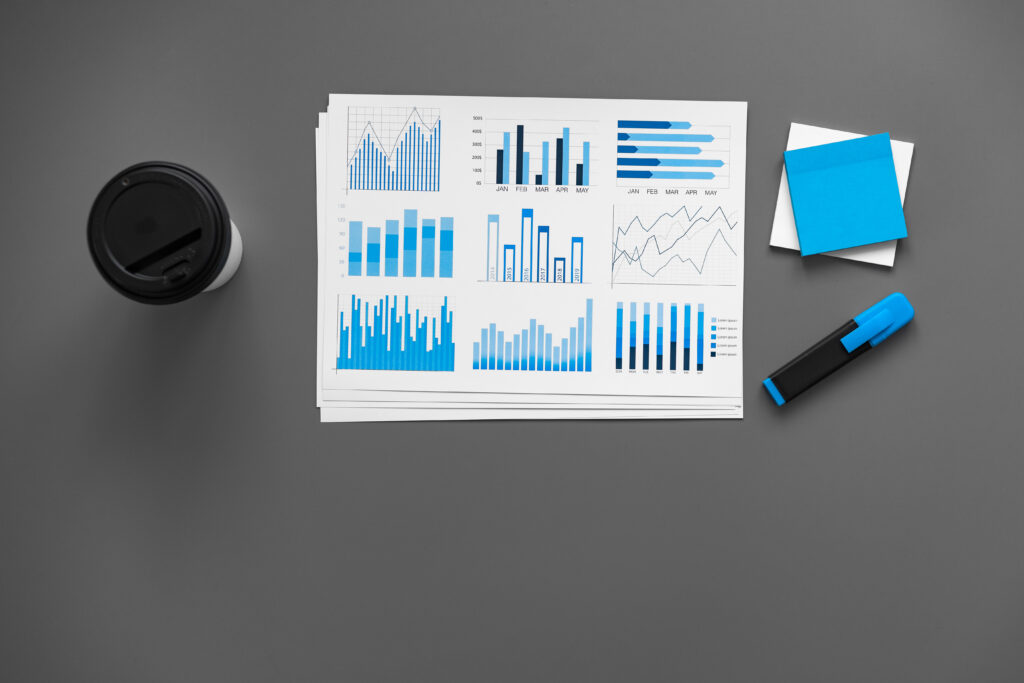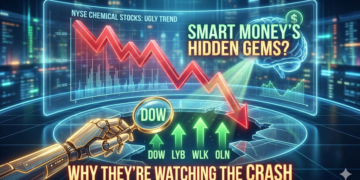Equifax Inc. (NYSE: EFX) is a global data, analytics, and technology company that has been a central figure in the financial services industry for more than a century. Founded in 1899 in Atlanta, Georgia, as the Retail Credit Company, Equifax began as a regional credit reporting agency focused on gathering and organizing information about consumers to help businesses make informed lending and credit decisions. Over the decades, the company expanded rapidly, both geographically and operationally, and eventually rebranded as Equifax in 1979 to better reflect its broader scope as a provider of information and insights beyond retail credit. Today, Equifax is recognized as one of the three major consumer credit reporting agencies in the United States alongside Experian and TransUnion, with a global presence that spans more than 24 countries.
Equifax’s business model has evolved significantly since its early days as a credit bureau. The company now operates through three primary segments: U.S. Information Solutions (USIS), Workforce Solutions, and International. USIS remains the core of its operations, providing credit reporting, identity verification, and risk management services to lenders, insurers, and other institutions. Workforce Solutions has become one of the company’s fastest-growing divisions, offering employment and income verification services along with human resource compliance solutions. Internationally, Equifax has extended its reach into Latin America, Europe, and the Asia-Pacific region, adapting its data-driven services to local markets while maintaining its position as a trusted source of consumer and business information.
Throughout its history, Equifax has consistently invested in technology to improve the accuracy, depth, and timeliness of the data it provides. The company has made strategic acquisitions to expand its offerings in data analytics, fraud prevention, and digital identity, strengthening its ability to serve financial institutions, government agencies, and corporations. Its solutions are not only integral to lending and credit decisions but also play a vital role in employment verification, background screening, and compliance processes across multiple industries. This diversification has positioned Equifax as more than just a credit bureau, evolving it into a comprehensive data insights company that helps organizations and consumers navigate increasingly complex financial and digital environments.
Despite its reputation as a leader in credit reporting, Equifax’s journey has not been without challenges. The company faced one of the largest data breaches in history in 2017, which exposed sensitive information from nearly 150 million consumers. This event marked a turning point for Equifax, prompting significant investment in cybersecurity, infrastructure modernization, and governance reforms to restore consumer trust and regulatory confidence. While the breach highlighted vulnerabilities, it also accelerated the company’s transformation into a more technology-focused enterprise committed to enhancing data security and transparency.
Today, Equifax remains an influential player in the global financial system, serving as a critical link between consumers, lenders, and businesses. With a market capitalization exceeding $30 billion, the company continues to generate billions in annual revenue while leveraging its data assets to innovate in areas like artificial intelligence, cloud-based analytics, and advanced fraud prevention. Its ability to adapt to evolving market conditions, regulatory environments, and technological shifts has allowed Equifax to maintain its position as one of the most important companies in the credit and data services industry.
Institutional Investors Signal Waning Confidence
One of the clearest bearish indicators for Equifax is the notable reduction in institutional holdings. HB Wealth Management LLC slashed its position in Equifax by 55.5% in the second quarter of 2025, selling 10,545 shares and leaving only 8,455 shares valued at approximately $2.19 million. While other hedge funds have been quietly accumulating smaller positions in Equifax during the first half of the year, the fact that a prominent institutional investor significantly reduced its stake sends a cautionary signal. Hedge funds and institutions own over 96% of Equifax’s stock, meaning changes in their behavior have a disproportionate impact on the share price. If more large holders follow the same strategy, it could accelerate downward pressure on the stock.

CHECK THIS OUT: Gyrodyne (GYRO) Lands $28.74M Deal for 49 Acres in St. James, NAV Jumps 6% and NioCorp (NB)’s $1.14B Elk Creek Project Set to Transform U.S. Critical Minerals Supply.
Earnings Beat Masks Valuation Concerns
Equifax’s recent earnings report initially appeared positive, with the company delivering $2.00 per share in earnings for the second quarter, beating analyst expectations of $1.92. Revenue came in at $1.54 billion, up 7.4% year-over-year, and net margin stood at 10.95%. Management guided full-year 2025 EPS to a range of 7.33 to 7.63, with analysts projecting 7.58 EPS. On the surface, these numbers look encouraging.
However, the bearish lens reveals underlying concerns. Equifax trades at a lofty price-to-earnings ratio of nearly 50 (49.72), paired with a P/E/G ratio above 3.0, both of which suggest the stock is richly valued relative to its growth prospects. With a beta of 1.68, Equifax is more volatile than the broader market, meaning downside moves could be sharp if growth fails to meet expectations. While beating earnings estimates by eight cents is a short-term win, long-term investors may question whether paying a near-50x multiple for mid-single-digit revenue growth is justified.
Insider Selling Raises Red Flags
Equifax’s leadership has also contributed to bearish sentiment with substantial insider selling. CEO Mark W. Begor recently sold 48,264 shares at an average price of $241.71, netting approximately $11.66 million. This transaction reduced his direct holdings by over 25%, leaving him with about 142,872 shares. Insider selling at this scale is often interpreted as a lack of confidence in near-term stock performance, particularly when the CEO leads the charge. Corporate insiders currently own only 1.40% of the company, further reinforcing the perception that leadership is more inclined to cash out than accumulate equity.
Regulatory and Legal Overhangs
Equifax’s history with regulatory and legal challenges remains one of its most significant headwinds. The company continues to operate under the shadow of its 2017 data breach, one of the largest in U.S. history, which compromised the personal information of nearly 150 million people. In early 2025, the Consumer Financial Protection Bureau fined Equifax $15 million for mishandling consumer credit report disputes, citing failures to address inaccuracies and evidence provided by consumers. Regulatory scrutiny of credit reporting practices is unlikely to ease, leaving the company vulnerable to further fines, lawsuits, and reputational damage. This persistent regulatory overhang adds to investor risk, particularly in a market that is already skeptical of data privacy and compliance lapses.
Competitive Pressures and Market Disruption
Equifax’s position as one of the three major U.S. credit bureaus is increasingly under threat. FICO recently shifted its model to license mortgage credit scores directly to resellers, cutting the bureaus out of a long-standing revenue stream. Analysts estimate that this could shave 10% to 15% off bureau earnings, directly undermining Equifax’s margins. Additionally, fintech companies and alternative data providers are challenging the relevance of traditional credit bureaus by using transaction-level data, open banking insights, and machine learning-driven risk assessments. If these challengers continue to gain traction, Equifax’s core business could erode over the next decade.
Market Valuation at Risk of Compression
Equifax currently trades with a market capitalization of $31.45 billion. The stock has a twelve-month high of $294.92 and a low of $199.98, with the current price hovering around $254.06. With growth guided in the mid-to-high single digits and regulatory headwinds still looming, the stock’s premium valuation could compress quickly if growth falters. Analyst targets reflect this uncertainty. Robert W. Baird recently lowered its price target to $289, JPMorgan cut its target to $272, and Oppenheimer trimmed its estimate to $279. While some analysts still rate Equifax a “Buy,” the downward revisions show diminishing conviction.
Dividend and Balance Sheet Provide Little Cushion
Equifax pays a quarterly dividend of $0.50 per share, or $2.00 annually, representing a yield of just 0.8%. With a payout ratio of 39.14%, the dividend is sustainable but not compelling enough to attract income-focused investors. The company’s balance sheet shows a current ratio and quick ratio of just 0.77, alongside a debt-to-equity ratio of 0.79. These metrics indicate limited liquidity flexibility and an elevated reliance on debt. In a higher interest rate environment, this capital structure could add pressure to both cash flow and profitability.
Conclusion: Equifax Faces More Downside Risk Than Upside
Despite a recent earnings beat, strong institutional ownership, and modest revenue growth, the bearish case for Equifax outweighs the bullish arguments. High valuation multiples, insider selling, regulatory headwinds, competitive disruption, and a fragile balance sheet all point toward downside risk. While some investors may see Equifax as a stable data and analytics play, the reality is that its premium valuation leaves little margin for error. Unless the company can demonstrate faster growth, stronger competitive resilience, and improved regulatory compliance, its stock may face significant pressure in the quarters ahead.
READ ALSO: CEL-SCI (CVM) Stock Could Explode After Saudi Breakthrough Deal and Ondas Holdings (ONDS) Lands $2.7M Defense Order.






